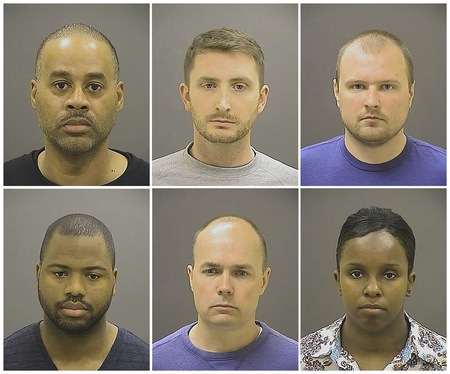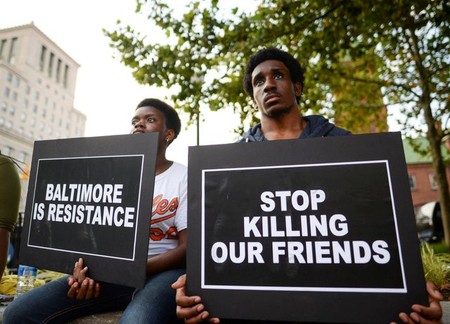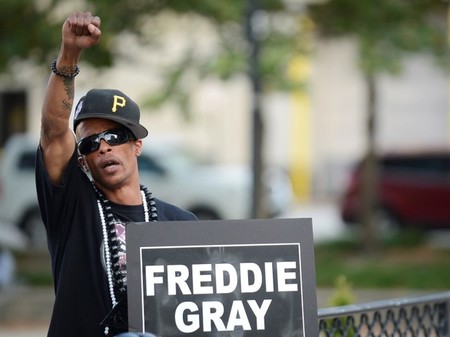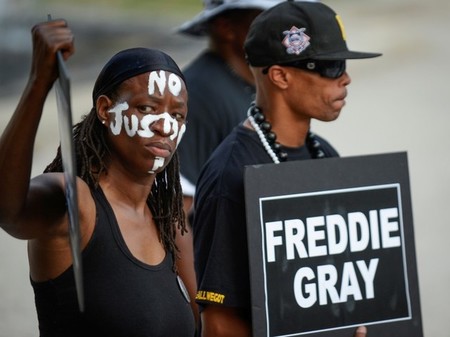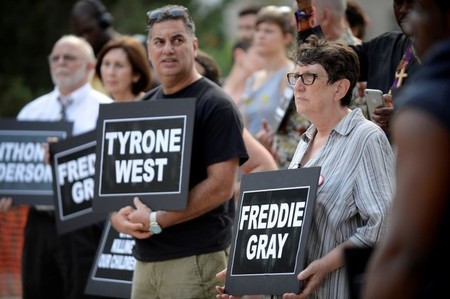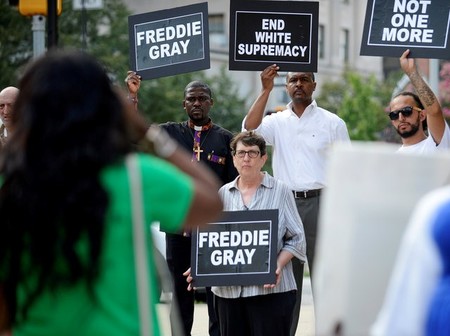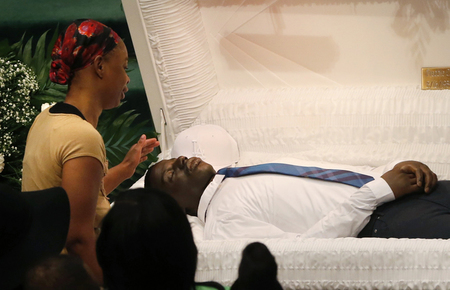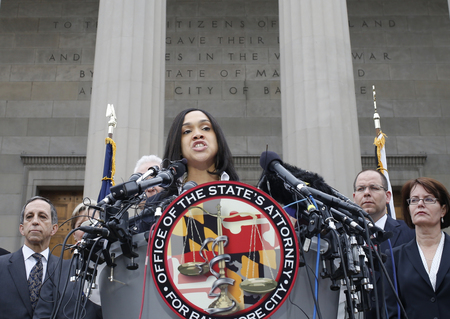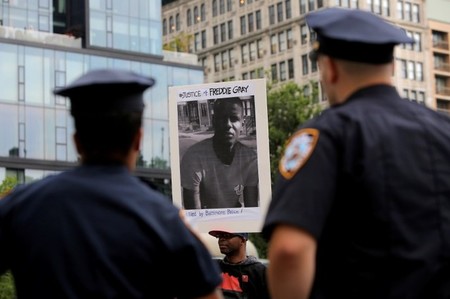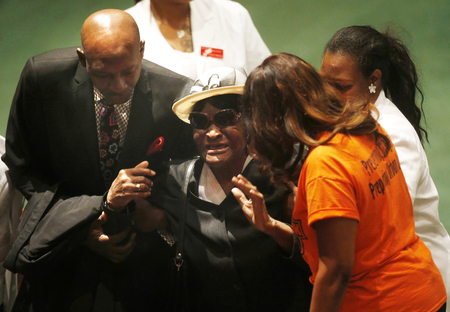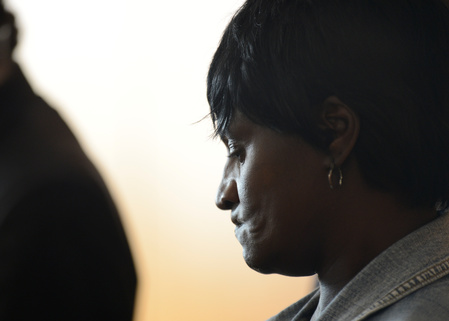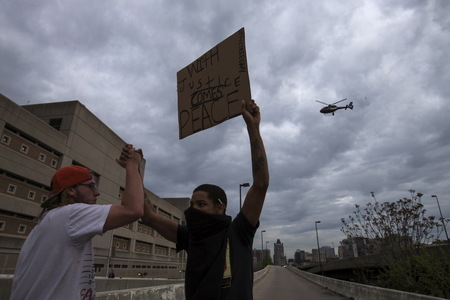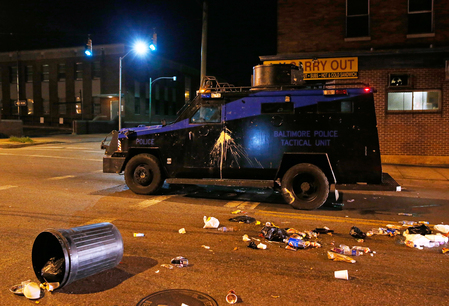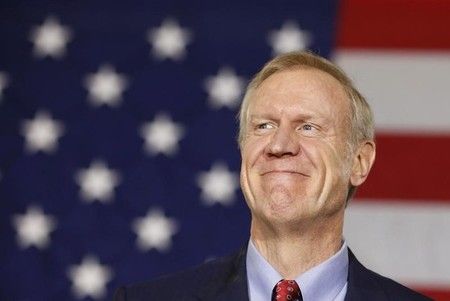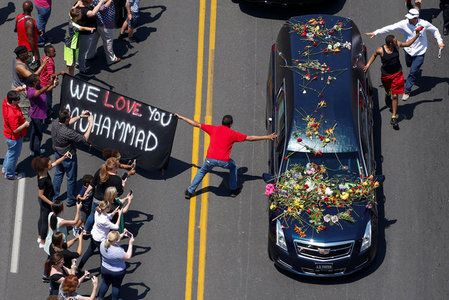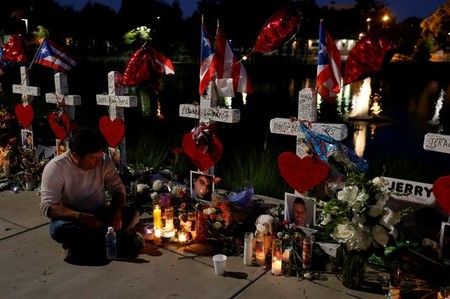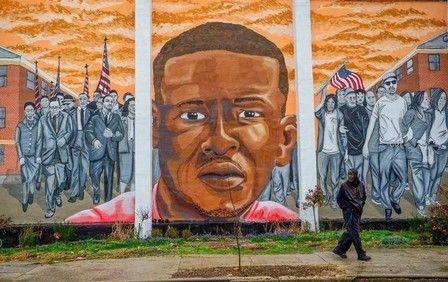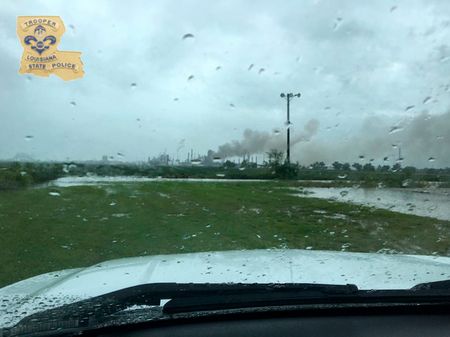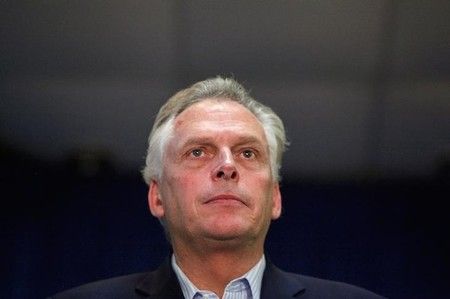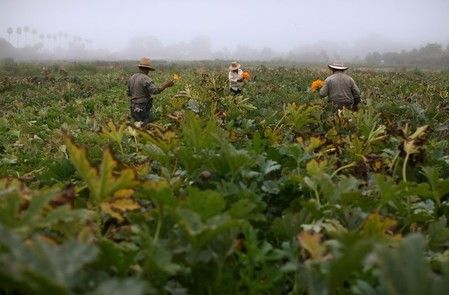Advertisement
Baltimore prosecutor drops police charges in Freddie Gray case
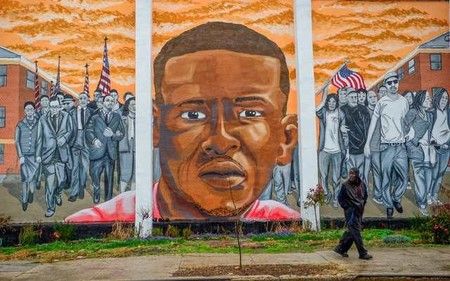
By Ian Simpson
WASHINGTON (Reuters) – Baltimore’s top prosecutor on Wednesday dropped remaining charges against police officers tied to the death of black detainee Freddie Gray, after failing four times to secure convictions in a case that inflamed the U.S. debate on race and justice.
Prosecutor Marilyn Mosby had stunned the city and became a national figure when she filed charges against six officers just days after Gray’s death from a broken neck suffered in a police van sparked protests and rioting in April 2015.
The death of the 25-year-old was among the high-profile deaths of black suspects at the hands of U.S. police that have made law enforcement tactics and police officers’ treatment of minorities into national headlines, It also fueled the rise of the civil rights movement Black Lives Matter.
The decision to drop charges against the three remaining officers facing trial came a day before Officer Garrett Miller was due to go on trial in Baltimore City Circuit Court.
At a news conference held before a mural in Gray’s neighborhood memorializing him, a combative Mosby said individual police officers had tried to thwart her investigation.
The interference included officers who were witnesses investigating the case and key questions not being asked during interrogations, she said. A police counter-investigation aimed at disproving the prosecution’s case also failed to execute search warrants, Mosby said.
“Police investigating police, whether they are friends or merely their colleagues, was problematic,” she said to cries of “we’re with you” from onlookers.
Successful prosecution was impossible without an independent investigation, a say in whether the cases would be heard before a judge or jury, community oversight of police and major justice reforms, she said.
Baltimore Police Commissioner Kevin Davis said the decision to drop charges was wise and would help the city move forward.
“As the trials end and this chapter in Baltimore’s history closes, it is important that we collectively resolve to direct our emotions in a constructive way to reduce violence and strengthen citizen partnerships,” Davis said in a statement.
FOUR ATTEMPTS TO CONVICT
Gene Ryan, the head of the Baltimore police union, also welcomed the decision but said Mosby’s allegations of police interference were “outrageous.”
“The state’s attorney simply could not accept the evidence that was presented,” Ryan said at a news conference, flanked by the accused officers and their lawyers.
Prosecutors last week failed in their fourth attempt to secure a conviction against a police officer. Judge Barry Williams acquitted three officers in bench trials, and the trial of a fourth officer ended in a deadlocked jury. The officers still face administrative reviews over Gray’s death.
Reacting to the decision to drop charges, Republican presidential nominee Donald Trump said Mosby had made a bad call in prosecuting the officers.
“It was disgraceful what she did and the way she did it,” he told reporters in Florida.
Gray was arrested after he fled officers unprovoked in a high-crime area. Officers bundled him into a police wagon shackled and not secured by a seat belt.
Prosecutors alleged that officers gave Gray a “rough ride,” and failed to secure him as outlined in department protocol or to seek medical assistance.
But defense lawyers said officers had the discretion on whether to fasten detainees into seatbelts, and that it was unclear when Gray suffered his fatal neck injury.
It represented one of the first high-profile cases in which a prosecutor went after officers involved in a black suspect’s death. Grand juries had declined to charge officers involved in the shooting of Michael Brown, 18, in Ferguson, Missouri, and in the choking death of Eric Garner, 43, in New York.
Federal prosecutors have launched a civil rights investigation into the shooting of a black man by police in Baton Rouge, Louisiana, and Minnesota officials began a probe into a fatal shooting of a black motorist outside St. Paul. Both killings occurred this month and triggered new protests.
(Reporting by Ian Simpson and Susan Heavey; Editing by Scott Malone and Marguerita Choy)


